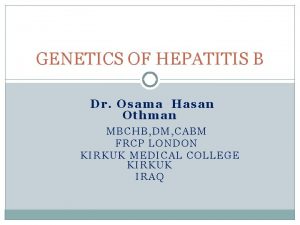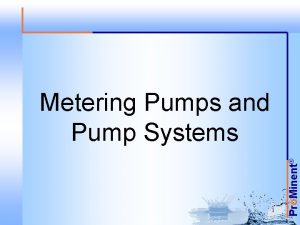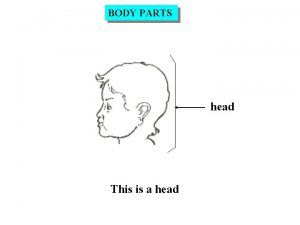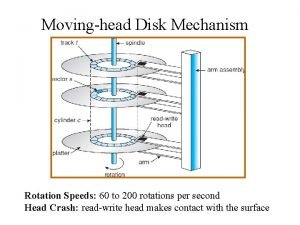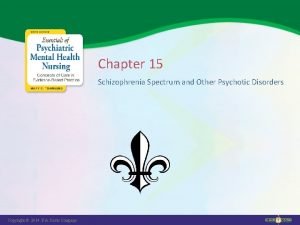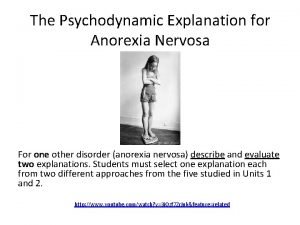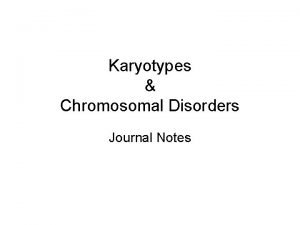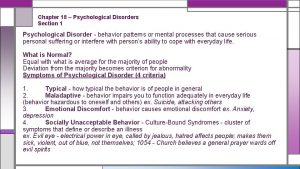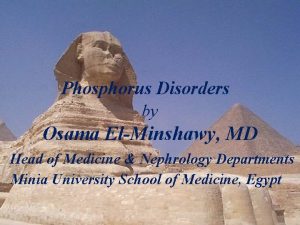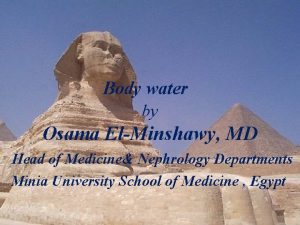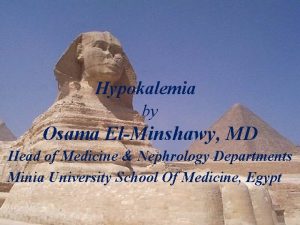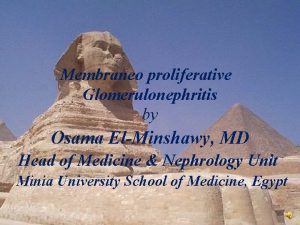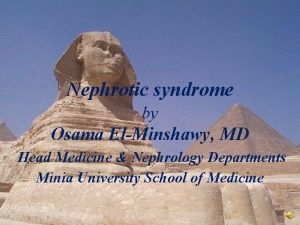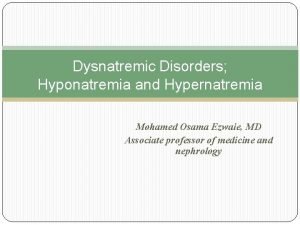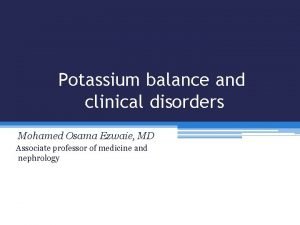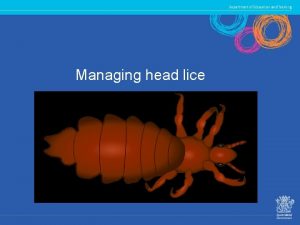Na Disorders by Osama ElMinshawy MD Head of

Na Disorders by Osama El-Minshawy, MD Head of Medicine & Nephrology Departments Minia University School Of Medicine, Egypt

Serum Na is e. g. 130 m. Eq/L what does it mean ? It represents that: the concentration of sodium in a liter of plasma is 130 m. Eq what does it tell about total body sodium? Absolutely nothing

Hypernatremia Hypernatremia: elevated Na level in blood. Normal Na is: 135 -145 m. Eq/L. The most common cause of hypernatremia is not an excess of sodium, but a relative deficit of free water in the body. So, hypernatremia is synonymous with the term dehydration.

Hypernatremia Water is lost from the body in: perspiration, insensible losses from breathing, in the feces and urine. If the amount of water ingested falls below the amount of water lost, the serum sodium level will begin to rise, leading to hypernatremia So, the most common cause of hypernatremia is inadequate intake of water. Rarely, hypernatremia can result from massive salt ingestion, as drinking seawater.

Hypernatremia Rise in the serum Na above normal results in a strong sensation of thirst, and increase in water intake, that correct the abnormality. So, hypernatremia often occurs in infants, or people with impaired mental status, who may have an intact thirst mechanism but are unable to ask for obtain water.

Clinical manifestations/ hypernatremia 1 -Weakness, irritability. 2 -More elevation in Na seizures and coma. 3 -Severe symptoms are due to acute elevation of the plasma sodium concentration to above 158 m. Eq/L 4 -Values above 180 m. Eq/L are associated with a high mortality rate.

Treatment The cornerstone of treatment is administration of free water to correct the relative water deficit. Water can be replaced orally. Rapid correction of hypernatremia is very dangerous. The body (in particular the brain) adapts to the higher sodium concentration.

Treatment Rapid lowering of Na concentration with free water, causes water to flow into brain cells brain swelling. This cerebral edema, seizures, or even permanent brain damage. So, hypernatremia should be treated carefully by a physician with experience in treatment of electrolyte imbalance.


Hyponatremia Hyponatremia: sodium (Natrium in Latin ) in plasma falls below 135 mmol/L. At lower levels water intoxication may result, which is a dangerous condition. Hyponatremia is an abnormality that can occur in isolation or, as a complication of other medical illnesses.

Symptoms of Hyponatremia Most patients with chronic water intoxication are asymptomatic, but may have symptoms related to the underlying cause. Severe hyponatremia may cause osmotic shift of water from the plasma into the brain cells. symptoms are: nausea, vomiting, headache and malaise.

Symptoms of Hyponatremia Confusion, Diminished reflexes, Convulsions, stupor, or even coma may occur.

Hyponatremia The Cause of Hyponatremia is due to increased vasopressin i. e antidiuretic Hormone (ADH). Vasopressin is a hormone that causes retention of water, but not salt. It is the physician's task to identify the cause of the increased ADH activity in each case.

I-Hypovolemic Hyponatremia ADH secretion is increased In volume depleted patients, because volume depletion is a potent stimulus for ADH secretion. The kidneys of such patients produce a concentrated urine. Treatment is to restore patient's blood volume with isotonic saline.

II-Normal Blood Volume Hyponatremia Their diagnosis may be SIADH syndrome. SIADH is a non-physiologic release of ADH and occurs as a side effect of certain medicines or, pneumonia or lung abscess, brain disease, or cancer small cell lung. Treatment by 150 ml of 3% saline, high salt diet and loop diuretic that render the urine isotonic Demeclocycline 300 mg twice daily is useful in chronic states

III-Hypervolemic Hyponatremia Characterized by presence of peripheral edema. Because these patients, have reduced blood volume, which is a potent stimulus for ADH release, so they have retained water and become hyponatremic. Treatment of these patients involves **-treating the underlying disease as liver cirrhosis or heart failure

Death From Hyponatremia Death from Hyponatremia is due to over intake of water. Hyponatremia happen in 13% of runners in a Boston Marathon, with life threatening Hyponatremia ( Na < 120 mmol/L) in 0. 6%. The runners at risk of water intoxication had weight gain during the race due to excessive water intake. the cause of exercise-associated Hyponatremia is due to excessive drinking & an inappropriate secretion of the ADH which prevents kidneys from excreting the excess water in the urine.


Thank You
- Slides: 19
